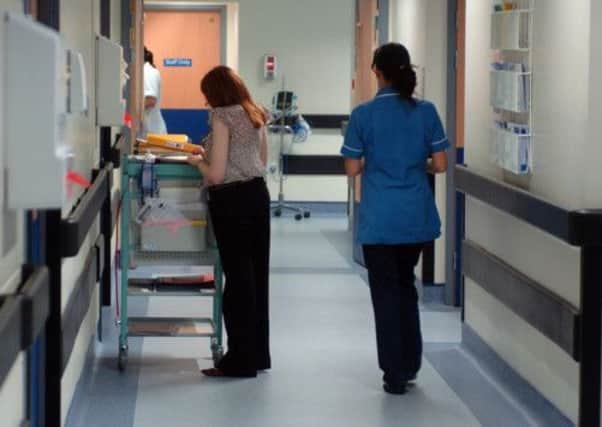Dosing up on common sense before you get to hospital


The prospect of a stay in hospital is never pleasant but sometimes it’s one we can’t avoid.
However, the experience and outcome of your stay isn’t entirely in the medics’ hands – we as patients also have a part to play. So says Michael Alexander, and after decades of working as a nurse around the world, including in his native New Zealand, Britain and Switzerland, this is something he knows a thing or two about.
Advertisement
Hide AdAdvertisement
Hide AdAlexander has now written an e-booklet which aims to help hospital patients get the most out of their treatment. Getting Out Alive: A Guide To Surviving Hospital looks at every stage of our healthcare – from being an in-patient, to getting discharged, explaining how the process works and what to be aware of.
But what Alexander stresses right from the start is that, while it may seem strange, not a lot of curing actually goes on in hospitals. “One of the most common expectations I’ve come across in patients is that we’re going to cure them. But often we don’t – we help you manage your problems, deal with acute crises, and try to stop the problems happening again,” he explains.
“You can’t always expect medicine to cure your problem, but you can expect it to help you live with it.
“No drug or treatment is as effective as your body when it gets a fair chance at healing itself.”
Advertisement
Hide AdAdvertisement
Hide AdBeing able to describe your symptoms well is a great help to medical staff, says Alexander, who recommends that people keep a symptoms diary noting information such as when and where the pain started.
He says patients will usually be asked these questions when they’re assessed, but points out: “Often when a patient’s put on the spot, they might not remember to mention everything they could, so having a diary, or even just a slip of paper with a description of the symptoms, is a huge help.”
He says it’s important not to put a brave face on, and to be completely honest with medical staff.
“You may not like to admit you take drugs or drink a lot, but we’re not here to judge. Omitting information like this can be fatal.”
Advertisement
Hide AdAdvertisement
Hide AdOnce admitted into hospital he says there are some “simple but vital” things to do to help ensure your stay goes smoothly.
The patient’s goal should be to help reduce the possibility of errors or complications, says Alexander, who points out that the most common hospital error is with medication.
He explains that nurses are taught to check the five rights before giving medication – right person, right drug, right dose, right time, right route – and suggests patients make sure the nurse has indeed checked them all. Surgical errors are very rare, he stresses, but he suggests the patient makes sure their surgeon writes his initials on the part of the body to be operated on.
Then there’s the small matter of pain. A degree of discomfort can be an expected part of recovery, but Alexander advises patients to always tell someone if they’re in pain, and don’t let it build up – it’s easier to keep pain levels under control with the use of regular painkillers than it is to control pain that’s become severe.
Advertisement
Hide AdAdvertisement
Hide AdInfections can cause problems in hospital, but he is keen to point out that there’s not always someone to blame – in many cases it’s the body’s natural bacteria that’s caused it.
Staying mobile, unless advised otherwise by medical staff, can help reduce recovery time for both medical and surgical patients.
The appropriate type of movement will, of course, vary from patient to patient and can be anything from sitting upright in bed or standing, to wiggling your toes or changing position in bed.
Another issue is that nearly half of patients don’t follow the care plan they’ve been given once they’re discharged from hospital, with the most common area of neglect is taking medication. Alexander also has one final tip: “Be nice to the people who are going to look after you or your loved ones in hospital – it’s common sense.”
Advertisement
Hide AdAdvertisement
Hide AdThe title of his e-booklet is best taken with a pinch of salt, but the chief executive and general secretary of the Royal College of Nursing, Dr Peter Carter, says he’s worried it may give patients the wrong impression about going into hospital.
“We are concerned that the title and content implies that patients may not ‘survive hospital’ without the right preparation, which is inaccurate and risks worrying patients and their families and friends,” he says.
“UK medical staff provide excellent care to millions of patients who come through the hospital doors each year, and patients should be reassured their individual care needs will be met.”